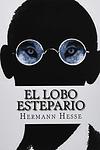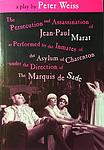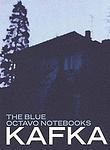The Greatest Czech, German "Existentialist, Fiction" Books Since 1910
Click to learn how this list is calculated.
This list represents a comprehensive and trusted collection of the greatest books. Developed through a specialized algorithm, it brings together 305 'best of' book lists to form a definitive guide to the world's most acclaimed books. For those interested in how these books are chosen, additional details can be found on the rankings page.
Genres
Existentialist literature is a genre that explores the meaning and purpose of human existence, often through the lens of individual experience and subjective perception. These books often delve into themes of freedom, choice, and responsibility, and may challenge traditional notions of morality and societal norms. Existentialist literature can be introspective and philosophical, and may offer readers a unique perspective on the human condition and the search for meaning in a complex and often chaotic world.
Countries
Date Range
Reading Statistics
Click the button below to see how many of these books you've read!
Download
If you're interested in downloading this list as a CSV file for use in a spreadsheet application, you can easily do so by clicking the button below. Please note that to ensure a manageable file size and faster download, the CSV will include details for only the first 500 books.
Download-
1. The Trial by Franz Kafka
The book revolves around a bank clerk who wakes one morning to find himself under arrest for an unspecified crime. Despite not being detained, he is subjected to the psychological torment of a bizarre and nightmarish judicial process. The story is a critique of bureaucracy, exploring themes of guilt, alienation and the inefficiency of the justice system.
The 39th Greatest Book of All Time -
2. The Magic Mountain by Thomas Mann
In this novel, the protagonist, a young, ordinary man, visits his cousin at a tuberculosis sanatorium in the Swiss Alps. Intending to stay for only a few weeks, he ends up remaining there for seven years, becoming a patient himself. The book explores his experiences and relationships with other patients and staff, delving into philosophical discussions on life, time, and the nature of disease. It also provides a vivid portrayal of the European society and intellectual life on the eve of World War I.
The 43rd Greatest Book of All Time -
3. The Unbearable Lightness of Being by Milan Kundera
Set against the backdrop of the Prague Spring period of Czechoslovak history, the novel explores the philosophical concept of Nietzsche's eternal return through the intertwined lives of four characters: a womanizing surgeon, his intellectual wife, his naïve mistress, and her stoic lover. The narrative delves into their personal struggles with lightness and heaviness, freedom and fate, love and betrayal, and the complexities of human relationships, all while offering a profound meditation on the nature of existence and the paradoxes of life.
The 114th Greatest Book of All Time -
4. The Metamorphosis by Franz Kafka
The book tells the story of a man who wakes up one morning to find himself transformed into a giant insect. His transformation causes him to lose his job and become ostracized from his family, who are horrified and repulsed by his new form. As he grapples with his new reality, he becomes increasingly isolated and starts to lose his sense of humanity. The book explores themes of alienation, guilt, and identity, and is a profound examination of the human condition.
The 123rd Greatest Book of All Time -
5. The Castle by Franz Kafka
This novel presents the story of a man who arrives in a village and struggles to gain access to the mysterious authorities who govern it from a castle. The protagonist, a surveyor, faces the constant frustration of his efforts to make contact with the elusive authorities and integrate into village society. The book explores themes of alienation, bureaucracy, the seemingly endless frustrations of man's attempts to stand against the system, and the futile pursuit of an unobtainable goal.
The 133rd Greatest Book of All Time -
6. Steppenwolf by Hermann Hesse
The novel presents a poignant exploration of a man's struggle with his dual nature. The protagonist, a middle-aged man, finds himself torn between his humanistic, intellectual tendencies and his more primitive, wolf-like instincts. As he navigates his way through the surreal and sometimes hallucinatory world, he encounters various characters who challenge his views and push him towards self-discovery and transformation. The narrative delves into themes of alienation, the subconscious mind, and the search for meaning in life.
The 147th Greatest Book of All Time -
7. Franz Kafka: The Complete Stories by Franz Kafka
This collection of stories offers a comprehensive look at the work of a renowned author, known for his surreal and often unsettling depictions of modern life. The stories explore themes of existential anxiety, guilt, and absurdity, often through narratives in which ordinary people face extraordinary, inexplicable circumstances. The collection showcases the author's unique style and his profound influence on 20th-century literature.
The 170th Greatest Book of All Time -
8. The Glass Bead Game by Hermann Hesse
Set in the 23rd century, the novel revolves around a highly intellectual game, the Glass Bead Game, which incorporates all fields of human and cosmic knowledge. The story follows the life of Joseph Knecht, a scholar who becomes a Magister Ludi (Master of the Game). The book explores his life and thoughts, including his relationships with others and his questioning of the values of his society. The narrative is a profound exploration of human life, knowledge, and spirituality.
The 450th Greatest Book of All Time -
9. The Notebooks of Malte Laurids Brigge by Rainer Maria Rilke
"The Notebooks of Malte Laurids Brigge" is a semi-autobiographical novel narrated by a young man from Denmark living in Paris, who is trying to understand the world and his place in it. The protagonist is a poet and a dreamer, who spends his time observing and reflecting on the people and situations around him. The book is a collection of his thoughts, observations, and musings, which often revolve around themes of death, solitude, history, and the nature of existence. It's a deep and introspective exploration of the human condition and the nature of creativity.
The 509th Greatest Book of All Time -
10. The Book of Laughter and Forgetting by Milan Kundera
This novel is a blend of fiction, autobiography, and philosophical musings that explores the nature of forgetting, the power of laughter, and the struggle for personal and political freedom. Set against the backdrop of the political turmoil in Czechoslovakia in the 20th century, it follows the interconnected stories of various characters, including a man who is expelled from the Communist Party, a young woman in love with a man whose father was a political prisoner, and a couple who flee to America. Throughout, the book delves into the ways in which personal and collective memories shape identity and history.
The 783rd Greatest Book of All Time -
11. The Duino Elegies by Rainer Maria Rilke
"The Duino Elegies" is a collection of ten elegies that delve into the complexities of human existence, exploring themes of love, death, time, God, and the nature of reality. The author uses vivid and often unsettling imagery to convey a sense of the profound beauty and pain inherent in the human experience. The elegies are named after the castle of Duino, where the author began writing them, and they are renowned for their introspective depth and philosophical insight.
The 1461st Greatest Book of All Time -
12. Demian by Hermann Hesse
The novel follows the life of a young man, Emil Sinclair, from childhood to adulthood, as he navigates the duality of his nature and the societal expectations of his time. He is influenced by a charismatic and intellectual peer, Max Demian, who introduces him to the concept of the world not as a dichotomy of good and evil, but as a unified whole. This leads Sinclair on a journey of self-discovery and spiritual enlightenment, exploring themes of identity, morality, and the subconscious. The narrative is heavily influenced by the philosophies of Carl Jung and the Gnostic tradition.
The 1635th Greatest Book of All Time -
13. The Glass Bees by Ernst Jünger
"The Glass Bees" is a novel set in a future dystopian society, where technology has advanced to the point where robotic bees are being used for honey production. The story follows a former cavalryman who, desperate for employment, accepts a job from a powerful technocrat to test out these mechanical bees. As the protagonist gets more involved in the technocrat's world, he begins to question the morality and implications of such advancements, leading to a deep exploration of the intersection between technology and nature, and the potential consequences of unchecked technological progress.
The 2443rd Greatest Book of All Time -
14. Too Loud A Solitude by Bohumil Hrabal
The narrative centers around an elderly man who has spent his life compacting paper and books into bales in a decrepit cellar, using a hydraulic press. Despite the menial nature of his job, he has cultivated a deep love and profound knowledge for literature, philosophy, and art from the books that pass through his hands, many of which he rescues from destruction. The story is a poignant exploration of the power and resilience of the human spirit in the face of a dehumanizing, totalitarian regime, and a meditation on the enduring value of art and the written word. The protagonist's intellectual journey and his resistance to the oppressive forces around him serve as a metaphor for the survival of culture and individuality under oppressive conditions.
The 3061st Greatest Book of All Time -
15. El Lobo Estepario by Hermann Hesse
The novel explores the profound loneliness and existential despair of a middle-aged man who feels alienated from bourgeois society. Struggling with a dual nature of being both man and wolf, he embarks on a journey of self-discovery that leads him through surreal experiences and encounters with various characters who challenge his perspectives on life, love, and spirituality. Through these experiences, he confronts his own psyche and the complexities of human existence, ultimately seeking a path to spiritual enlightenment and personal transformation.
The 4681st Greatest Book of All Time -
16. Marat Sade by Peter Weiss
The play is a dramatic exploration of power, class struggle, and human suffering set within the confines of an insane asylum in 1808 France. It depicts the Marquis de Sade as an inmate directing his fellow patients in a play about the assassination of Jean-Paul Marat, a radical journalist and politician during the French Revolution. The work delves into the philosophical and political debates between Sade and Marat, representing differing views on revolution, freedom, and the nature of humanity. As the inmates perform, the line between performance and reality blurs, creating a provocative and chaotic theater experience that challenges the audience's perception of madness and reason.
The 6119th Greatest Book of All Time -
17. Parables, Fragments, Aphorisms by Franz Kafka
This book is a collection of philosophical and existential musings, presented in the form of parables, fragments, and aphorisms. The work delves into the human condition, exploring themes of alienation, guilt, and the search for meaning in a seemingly incomprehensible world. The pieces are characterized by their brevity and depth, often leaving the reader with a sense of the uncanny and the profound. Through metaphor and succinct, thought-provoking statements, the author challenges readers to reflect on their own lives and the larger social and metaphysical systems that govern them.
The 7168th Greatest Book of All Time -
18. The Blue Octavo Notebook by Franz Kafka
The book in question is a collection of fragmented thoughts, reflections, philosophical musings, and narrative pieces that delve into the complexities of human existence, morality, and the struggle for understanding in a seemingly indifferent world. The entries, which are at times aphoristic and at other times more developed, reveal the author's preoccupation with themes of alienation, guilt, and the elusive nature of truth. The work offers a window into the author's inner life, showcasing his unique literary voice and the introspective nature of his thought process, which has left a lasting impact on modern literature.
The 7168th Greatest Book of All Time
Reading Statistics
Click the button below to see how many of these books you've read!
Download
If you're interested in downloading this list as a CSV file for use in a spreadsheet application, you can easily do so by clicking the button below. Please note that to ensure a manageable file size and faster download, the CSV will include details for only the first 500 books.
Download
















